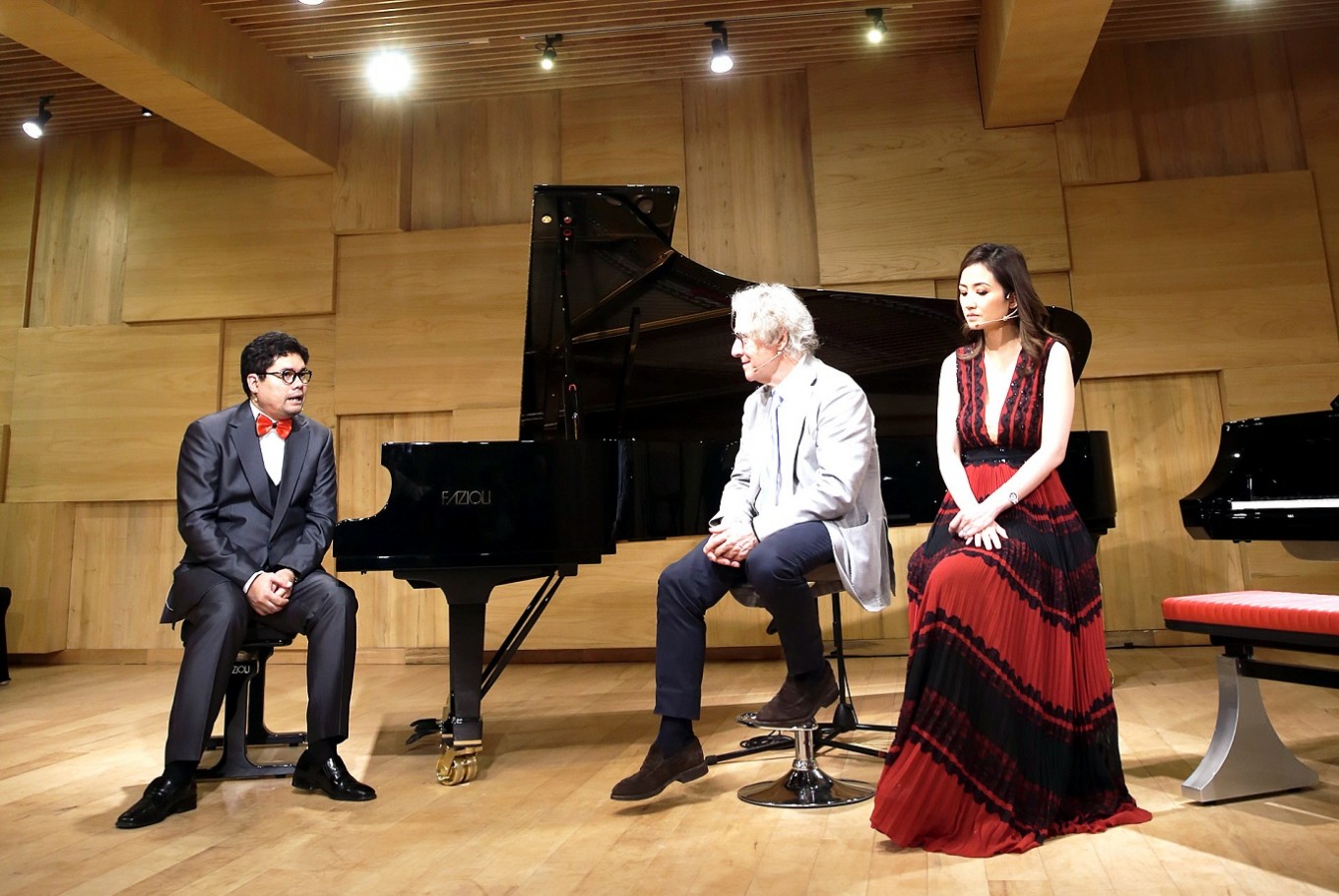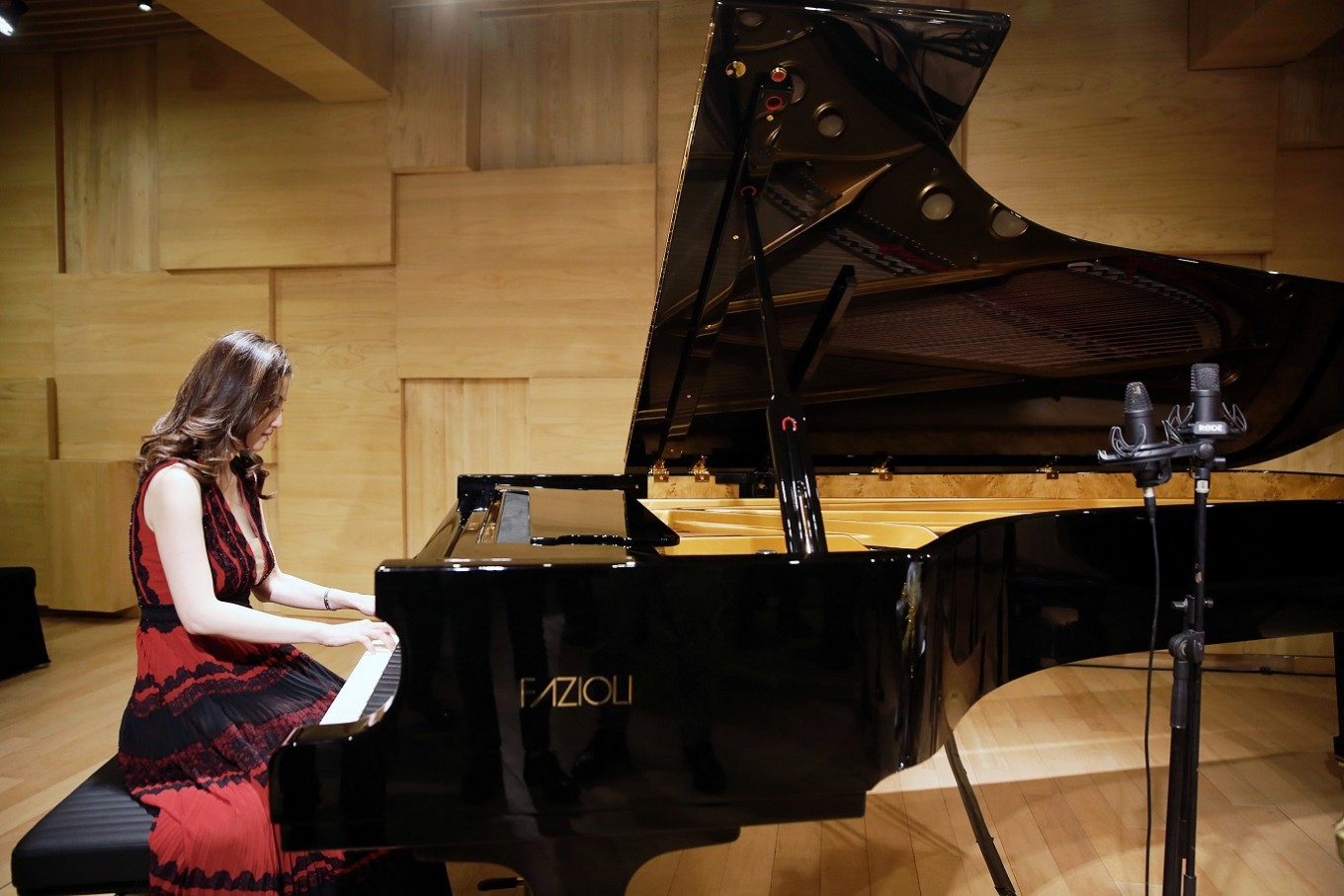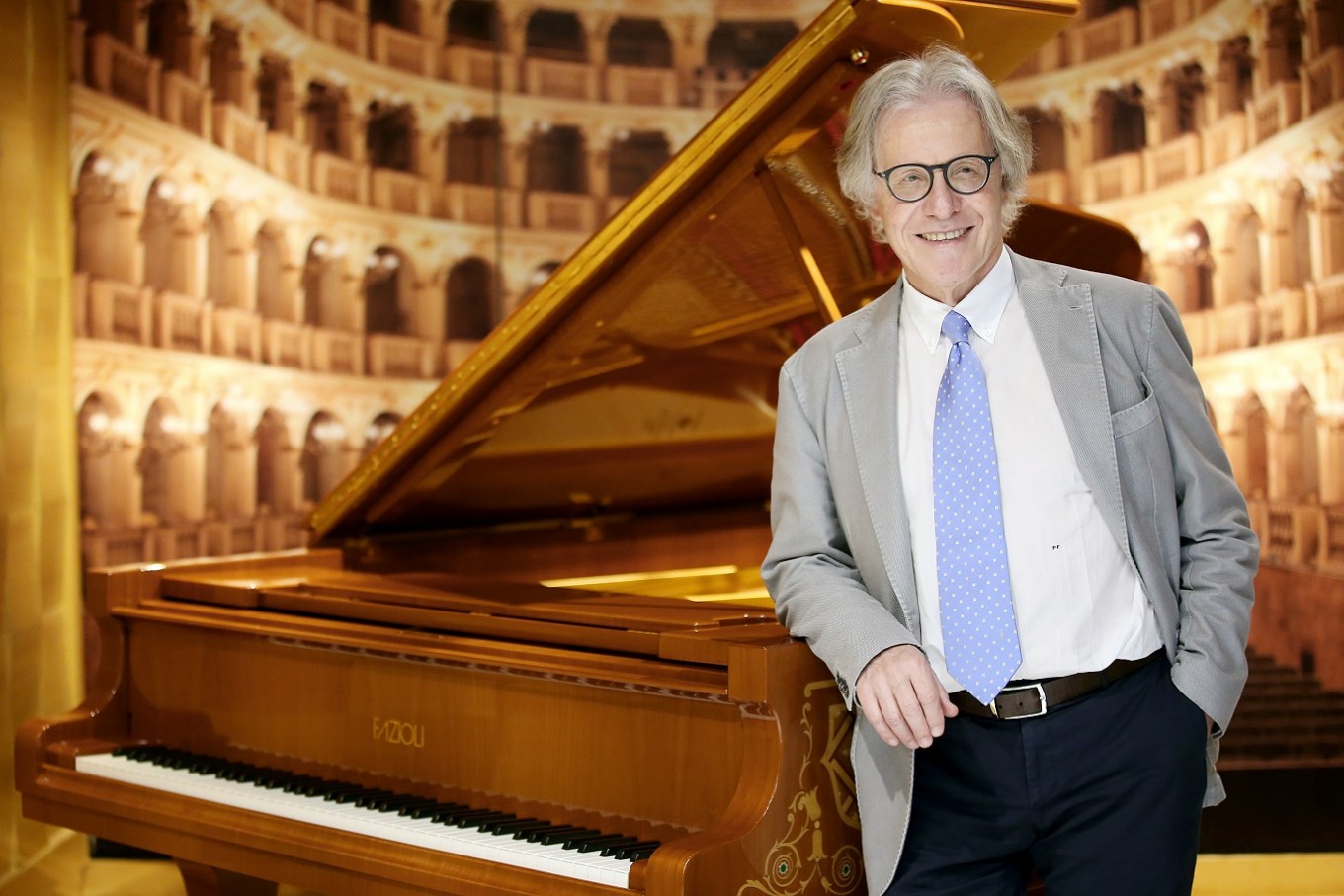Popular Reads
Top Results
Can't find what you're looking for?
View all search resultsPopular Reads
Top Results
Can't find what you're looking for?
View all search resultsThe faz buzz
When asked to name any piano brand, most people familiar with the instrument would think of John Broadwood & Sons or Graf, which were used by musical geniuses such as Wolfgang Amadeus Mozart and Ludwig von Beethoven. But these brands are hundreds of years
Change text size
Gift Premium Articles
to Anyone
I
n 1980, pianist and engineer Paolo Fazioli (born 1944) completely changed the paradigm of piano making by establishing his own piano factory. Using his engineering skills, Fazioli revolutionized the grand piano’s construction and design, allowing the instrument to produce a sound superior to that of other pianos. Obviously, he needed more than just carpenters and workers; he needed craftsmen with great artistic vision and sharp ears.
To build his factory, Fazioli moved from Rome to the small town of Sacile, near Venice, and more importantly, near the Val di Fiemme, which is known as the “musical forest” for spruce trees yielding especially resonant wood. Antonio Stradivari made his violins from spruce trees three centuries ago.
Not only that, Fazioli also improved the mechanisms of the piano, going as far as to coat the hinges with 24-carat gold to avoid oxidation and adding a fourth pedal.
“To build a piano with our philosophy, [you must have] a roof [a limit], because if you want better quality, you must change your mentality,” said Fazioli, who visited Indonesia for the first time on April 10 to 12 and appeared on the Grand Show, the country’s first talk show on classical music held at the Harco Building’s Grand Piano Atelier in Mangga Dua, North Jakarta.
Read also: Hospital boat charity raises funds through art auction and concert
“We want to have a limited quantity [of pianos] with controlled quality and give the best product possible. This will be our future.”
Today, Fazioli’s factory produces only 140 grand pianos a year, all supervised by him, unlike other brands that mass produce them at over 10,000 units a year.
However, since they are made to order, customers have to wait between four and eight months for their instruments, for which they are prepared to pay as much as Rp 6 billion (US$300,300). One example of this is the Fazioli M. Liminal model — an exclusive grand piano and only 10 of which exist in the world, including one in Jakarta.
His other invention is the biggest piano ever made, with a length reaching 3.08 meters. A length like this may produce an improved sound, but it also adds problems, such as a heavy piano lid.
However, Fazioli provided a solution for this problem, too. And thanks to him, the piano as an instrument has evolved once again.
 The piano man: Pianist and engineer Paolo Fazioli (center) appears on a talk show on classical music alongside Helen Gumanti (right) of the Grand Piano Atelier and pianist-composer Ananda Sukarlan in Jakarta.(The Grand Piano Atelier/File)
The piano man: Pianist and engineer Paolo Fazioli (center) appears on a talk show on classical music alongside Helen Gumanti (right) of the Grand Piano Atelier and pianist-composer Ananda Sukarlan in Jakarta.(The Grand Piano Atelier/File)
In the 17th century, the piano was called a harpsichord and player plucked the strings with a plectrum. However, when you hit the keys, volume would always remain the same — relatively soft.
It was then changed into a pianoforte (literally translated as “soft and loud” from Italian), whose strings are struck with a hammer. Its construction changed during Beethoven’s lifetime.
For 150 years, the piano did not develop or change significantly. Only after a visionary like Fazioli arrived onto the scene did it change to become a better, more sophisticated instrument made from different types of wood, with better mechanisms and an additional pedal.
Read also: Ananda Sukarlan's musical celebration of human emotions
But Helen Gumanti had an equally revolutionary idea: to introduce this kind of piano to Indonesia, where classical music is booming.
Helen has a broader vision in mind. She aspires to build the country’s classical music scene through this instrument by supporting the youngest, brightest and smartest musical talents, and guide them to achieve the career they deserve — to become a national artistic asset and represent the country on the world forum.
In today’s increasingly high-demanding society, a good instrument has become the minimum requirement for our musicians to boost our nation’s musical prestige and international image.
For this purpose, Helen created the Grand Pianos Atelier as a cultural center, with a concert hall and recording studio, sponsoring the best young pianists to perform and record.
Access to good instruments cannot remain a privilege afforded to a few when it has become a prerequisite to achieve greater success by the many.
 Helen Gumanti(The Grand Piano Atelier/File)
Helen Gumanti(The Grand Piano Atelier/File)
“Music to me is like a breath to life, and a good piano is the key to a transcendental experience to enjoy music,” Helen said, adding that when she tried a Fazioli piano for the first time, she was completely blown away by its three dimensional sound and the piano’s fast action.
“It facilitates my playing like no other pianos. Fazioli is the Rolls Royce [of pianos] when it comes to perfection in every detail of its craftsmanship, and like a Ferrari when it comes to performance. It’s a dream piano of every modern pianist,” she said.
Helen’s dream is not far-fetched as it initially seems. Right now, there is much to celebrate in our country when it comes to pianistic achievements.
In the week of Fazioli’s visit, two Indonesian pianists made history.
Edith Widayani, 27, along with her Taiwanese cellist partner Henry Chen, won first prize at the International Chamber Music Competition of Ecoparque de Trasmiera in Arnuero, Spain. It is one of Europe’s most prestigious chamber music competitions, in which Edith also nabbed the award for Best Instrumentalist.
Meanwhile, Janice Wijaya, 24, a top student at the Manhattan School of Music, was selected for the annual International Students Concert, a platform created by the school to show their best students to the world via internet streaming.
As John F. Kennedy once said: “A rising tide lifts all boats.”
We need to rethink what we should do with our musical treasures, and take a serious look at our society’s artistic education and how to use the nation’s artistic talents as a showcase to the world forum. It is not the work of one person; it must be a collaboration between the instrument, the producer, the composer and the musician — all performing at the highest quality.
When the piano improved during the life of Beethoven, the German master started to write music that would have been impossible to play on the instrument that came before.
This also happened with French composer Claude Debussy, when the piano of his era became capable of producing unimaginable colors.
It is the task of the 21st century composers to open the door to a new world of sounds, made possible by the new instrument created by Fazioli.
***
The writer is a pianist and composer.











